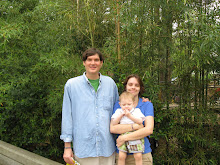Monday, April 6, 2009
Thing #1-B
Web 2.0 has incredible potential to both contribute to the learning experience and the ability to undermine it. I would love to have my students get involved in blogs on economic issues that affect them now. Through the ever evolving web, they could take our classroom discussions and see how they compare or relate to what is currently happening in our nation. Frequently, I will read an article or blog on a news source (like CNN.com) that directly relates to what we are discussing. I can take that information back to my students and enhance our discussion. I can also utilize the Web by having them do the same. I would like to use this tool more. However, one of the most dangerous things about the web is that anyone can pass themselves off as an expert. I have seen students report completely inaccurate information as gospel simple because they read it on a blog. I want my students to be curious about the world around them, but at the same time I hope that they are more discerning than they sometimes seem to be.
Subscribe to:
Post Comments (Atom)

"I have seen students report completely inaccurate information as gospel simple because they read it on a blog. I want my students to be curious about the world around them, but at the same time I hope that they are more discerning than they sometimes seem to be."
ReplyDeleteIt's about instructing them in media literacy skills to help them discern the fact from the fabrication. As a district, teaching these skills is what we're moving toward, starting at the elementary level. Until they reach you with these skills, it's going to take time to educate the current generation about critically assessing the validity of their information sources.